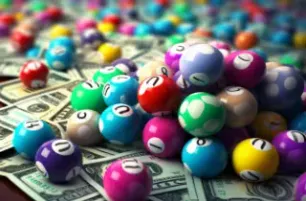Understanding the difference between bingo and Keno
Whether you're a bingo lover or new to keno, we'll explore the unique features, gameplay, and strategies of these exciting games. Let's dive in and discover the distinct worlds of bingo and keno!
What is Keno?
Keno is a popular gambling game that originated in ancient China and has evolved into a modern lottery-style game found in many casinos and online gambling platforms. In Keno, players select numbers from a predetermined range, often 1 to 80, depending on the game's rules.
The game begins when players choose their preferred numbers, typically marking them on a Keno ticket or selecting them digitally in online versions. Players can pick as few or as many numbers as they wish, up to a specified limit. After all the players have made their selections, the Keno game draws a set of winning numbers randomly.
In traditional brick-and-mortar casinos, Keno numbers are often drawn using a mechanical ball machine, while online versions utilize sophisticated Random Number Generators (RNGs) to ensure fair and unbiased outcomes.
The payout structure in Keno is based on the number of matches between the player's chosen numbers and the drawn winning numbers. The more numbers a player matches, the higher their potential payout. The odds and potential winnings vary depending on the casino and the specific Keno game being played.
Keno is known for its simplicity and fast-paced nature, making it an attractive option for players seeking quick gambling excitement. However, it is essential for players to understand that Keno, like all forms of gambling, relies heavily on luck. It is a game of chance, and there is no guaranteed strategy or skill that can influence the outcome.
As with any form of gambling, responsible play is crucial when enjoying Keno. Setting limits on spending, knowing when to stop, and treating it as entertainment rather than a means to make money are essential principles for playing Keno responsibly.
Bingo and Keno differences
Bingo and Keno are both popular lottery-style gambling games, but they have some key differences:
- Number Selection: In Bingo, players receive pre-printed cards with a grid of numbers. The numbers are drawn randomly, and players mark off the matching numbers on their cards. In Keno, players choose their own numbers from a set range, and the drawn numbers are compared to the player's selections.
- Gameplay: In Bingo, the game progresses as numbers are called out, and players mark off matching numbers on their cards. The first player to complete a specified pattern calls out "Bingo" and wins. In Keno, players select numbers before the draw, and the outcome is based on the number of matches with the drawn numbers.
- Number Range: In Bingo, the number range is typically limited, such as 1 to 75 or 1 to 90. In Keno, the number range is usually wider, such as 1 to 80.
- Payouts: Bingo payouts depend on the specific game and house rules, but they are usually based on completing specific patterns on the card. Keno payouts depend on the number of matches between the drawn numbers and the player's selections.
- Speed of Play: Bingo games usually progress at a steady pace, with numbers called out at regular intervals. Keno games can be faster or slower, depending on the frequency of number draws.
- Social Aspect: Bingo is often played in a social setting, with players interacting and celebrating wins together. Keno is typically more individualistic, as players choose their numbers independently.
- Variations: Bingo has different variations, such as 75-ball and 90-ball Bingo, with various patterns to complete. Keno also offers variations, but the core gameplay remains selecting numbers and matching them with drawn numbers.
Despite these differences, both Bingo and Keno are games of chance, and the outcome is determined by random number generation. Players should approach both games responsibly, set budgets, and play for entertainment purposes.
Is Keno more popular than bingo?
The popularity of Bingo and Keno can vary depending on the region and the preferences of the players. In some areas, Bingo may be more popular due to its long-standing tradition in social settings, such as church fundraisers or community events. It is often seen as a social activity where players gather together to play and interact.
On the other hand, Keno may be more popular in certain casino settings or regions where it is offered as a lottery-style game with the chance to win significant jackpots. Keno's popularity can be attributed to its simplicity and the potential for large payouts.
Ultimately, the popularity of Bingo and Keno is subjective and can fluctuate based on cultural factors, gaming regulations, and individual preferences of the players.




